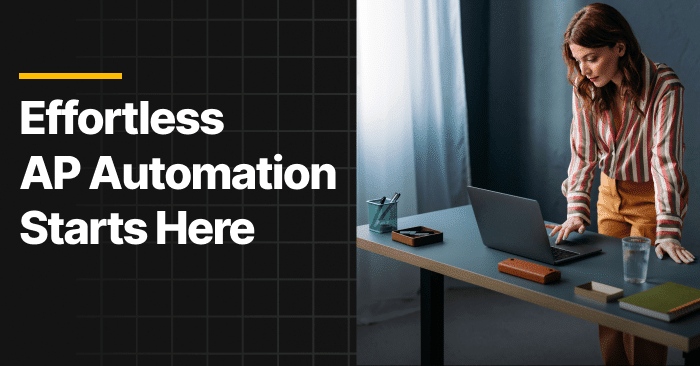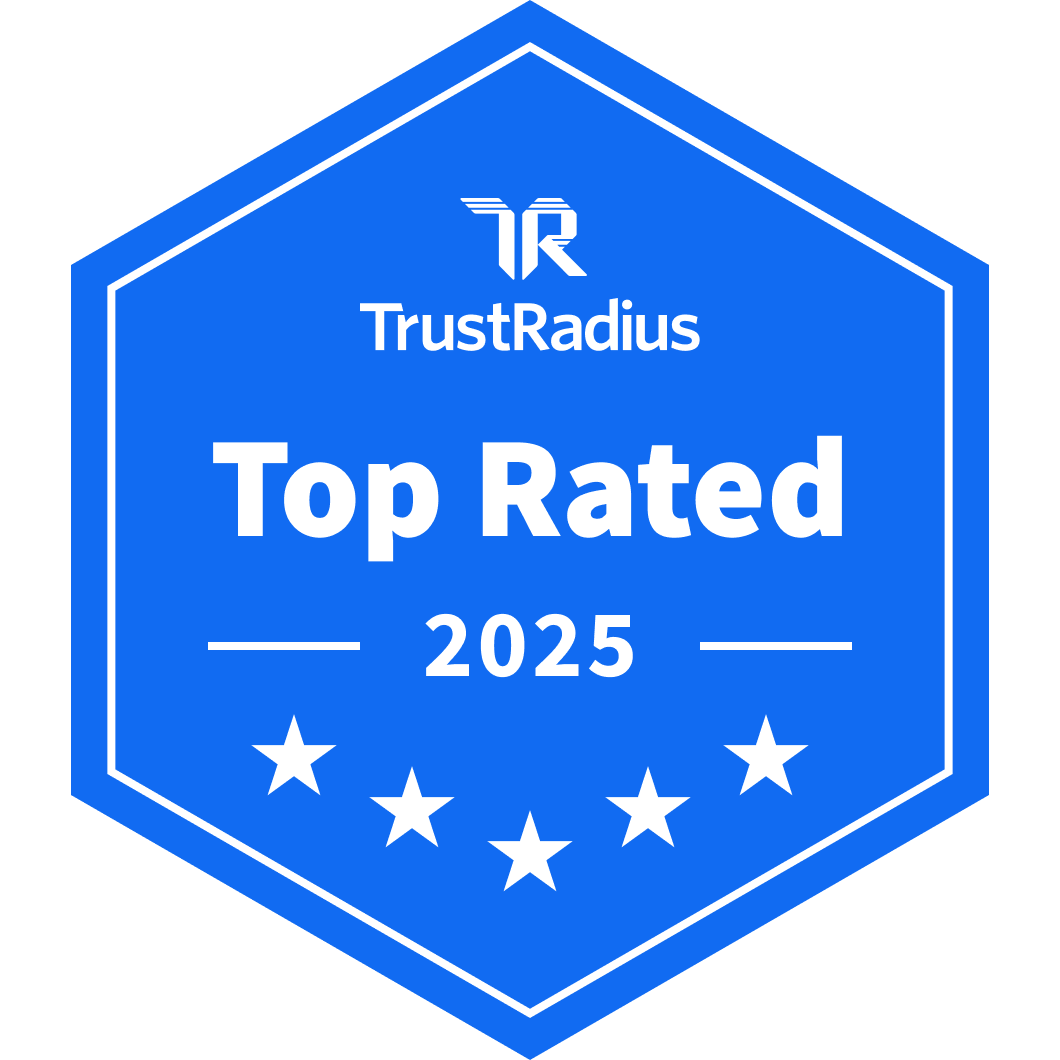
Save time and empower your finance team with Tipalti. The most complete AP solution loved by 5,000+ businesses.
- QuickBooks Online – Best small business accounting software
- Tipalti – Best software for international transactions
- Sage 100 – Best affordable on-premises or cloud-hosted ERP
- SAP Business ByDesign – Best for growing multi-national companies and subsidiaries needing an affordable, real-time cloud solution
- Sage 50cloud – Best for complex tasks
- Xero – Best for inventory management
- SAP Business One – Best cloud-hosted ERP for a wide range of functionality and countries
- NetSuite ERP – Best for ERP integration
- QuickBooks Solopreneur – Best for self-employed contractors and freelancers
- DATEV – Best for international tax advisors, auditors, lawyers, and European SMEs
| Starting Cost | Trial Period | Users | Mobility | Use Case | |
|---|---|---|---|---|---|
| QuickBooks Online | $30/month | 30-days | Limited by plan | QuickBooks Online mobile app | Best for all types of business |
| Tipalti | Quote-based | N/A | Limited by plan | Mobile app for Expenses on iPhone and Android | Best for international transactions |
| Sage 100 | Quote based | N/A | Hundreds | Mobile apps iPhone and Android | Best affordable on-premises or cloud-hosted ERP |
| SAP Business ByDesign | Quote based | 30-day | Thousands | Mobile apps iPhone and Android | Best for growing multi-national companies and subsidiaries needing an affordable, real-time cloud solution |
| Sage 50cloud | $607/year | 30-days | Limited by plan | Sage 50c Capture mobile app | Best for complex tasks |
| Xero | $15/month | 30-days | Unlimited | Mobile apps iPhone and Android | Best for inventory management |
| SAP Business One | Quote based | N/A | No official limit | Mobile apps iPhone and Android | Best cloud-hosted ERP for a wide range of functionality and countries |
| NetSuite ERP | Quote based | 14-days | Depends on the license agreement | Mobile apps for iPhone and Android | Best for ERP integration |
| QuickBooks Solopreneur | $20/month | 30-day | 1 user | Mobile app iPhone and Android | Best for Self-employed Contractors and Freelancers |
| DATEV | Quote based | N/A | Depends on license agreement | Mobile apps for iPhone and Android | Best for international tax advisors, auditors, lawyers, and European SMEs |
Entrepreneurs are often on an island when it comes to finances. As a small business owner, one of the most important things you can look out for is budget. Currently, 64% of business owners do their own bookkeeping. Every second and every penny counts. If you don’t have a tight grip on finances, AP could be spinning its wheels. This means no one should be wasting hours on menial jobs that you can automate.
It starts with integrating the best small business accounting tools with your everyday workflows. Keep a keen eye on finances with smart technology that gives a small enterprise room to grow. In this article, we’ll look at what accounting software looks like for AP team members, top features, and the best small business accounting software platforms you can find today.
What Does a Small Business Accounting System Do?
About 70% of small businesses don’t have an external accountant or bookkeeper to close the books. That’s where technology comes in for an accounting solution.
Small business accounting software helps an AP department reduce the time spent on manual data entry through integration and automation technologies. The business syncs bank accounts, credit cards, and other third-party apps with the software. The data is then processed according to custom settings.
While most accounting software gives you a simple start, a general understanding of accounting principles (like double-entry accounting) is needed to ensure accurate financial reports. For this reason, many companies still employ an accountant or bookkeeper to maintain and review the books.
Some accounting software, like QuickBooks Online and QuickBooks Desktop, make it convenient for a business to access its books and have an external bookkeeper or accountant use the Accountant edition.
Cloud-based Windows Online is an excellent small business solution. QuickBooks Desktop is available as a product for Windows or Mac, but the Windows version lets you integrate more third-party add-ons.
Basic Functions in a Small Business Accounting Software Program
- Bank account and credit card syncing
- Bank reconciliation with bank transactions feed
- Invoicing and templates
- Payment reminders
- Accounts payable and accounts receivable
- Online payment collection
- Multiple user access with role permissions and additional users
- Manual general ledger subaccount coding with expense or asset categorization
- Financial statements and reporting (balance sheets, statements of cash flow, etc)
- Tax compliance (year-end, sales tax, forms)
- Mobile app
Advanced Functions in a Small Business Accounting Software Program
- Payment processing
- Project management
- Supplier and customer portals
- Third-party add-ons for customizable features
- CRM and ERP capabilities
- Multi-currency processing
The Top 10 Small Business Accounting Software Programs
Below, we look at the 10 best accounting software programs on the market and how they address the challenges of running a small business.
1. QuickBooks Online
Best Small Business Accounting Software Overall
Overview
The majority of small business accounting professionals use QuickBooks Online for safeguarding financial data. It’s one of the most versatile, cloud-based applications on the market.
Intuit’s QuickBooks Online provides endless online training and resources and easily integrates with third-party applications. All features can be conveniently accessed from one main dashboard. You can upgrade your subscription as the business grows.
Key Features
- Built-in reporting with a trial balance, general ledger, and 1099 details
- Free plan of choice 30-day trial with 4 options for subscription
- Live bookkeeping service with versatile support
- Mobile app can receive payments, capture receipts, track mileage, etc.
- Run optional full-service payroll with time tracking and inventory management
Best For
The QuickBooks brand is the skeleton key to all types of accounting and bookkeeping software. QuickBooks Online is ideal for any type of industry. Cloud-based accounting software functionality offers a level of convenience that many business styles will find advantageous.
2. Tipalti
Best Software for International Transactions
Overview
Tipalti is user-friendly, cloud-based AP automation and global payments platform that helps a company automate supplier onboarding, invoice processing, tax compliance, global regulatory compliance, and payment remittance. Your company can optionally combine Tipalti’s AP automation and Expenses products for employee expense management and reimbursement.
The Tipalti platform enables companies to pay suppliers in over 190 different countries, in multiple currencies and payment methods. Businesses can streamline relationships through self-service portals and communication tools. It also integrates popular accounting software, ERP systems, and other finance tools for a seamless payment experience. Tipalti has highly rated customer support.
Key Features
- Supplier management with self-service portal, tax form collection, payment status
- Global payment capabilities in over 120 currencies in 200+ countries
- Invoice processing to automate approvals, improve accuracy, reduce errors
- Compliance and tax management reporting, including validation, and optional 1099-MISC and 1099-NEC eFiling through partnered Zenwork Tax1099 software
- Integrations with popular accounting software, ERPs, CRMs, and other tools
Best For
Tipalti is best suited for fast-growing businesses of any size that need to manage the accounts payable process and make international supplier payments. It’s ideal for a company that processes a high volume of invoices, deals with multiple currencies, and/or needs to comply with local tax and regulatory requirements. When the integrated ERP or accounting software has multi-entity or real-time features, you can work with multi-instance, multi-entity Tipalti software for accounts payable by each entity with combined views in real-time.
Tipalti serves a wide range of industries, including e-commerce, advertising, digital media, SaaS, marketplaces, and more.
66% fewer payment errors. 25% faster close. 80% less AP workload.


3. Sage 100
Best affordable on-premises or cloud-hosted ERP
Overview
Sage 100 is a customizable and scalable legacy ERP system for small businesses and medium-sized companies. It isn’t modern cloud software but is deployed as cloud-hosted or on-premises for up to hundreds of users. Include a budget for on-premises or cloud hosting costs.
With Sage 100, you can achieve more functionality by using modules for distribution and manufacturing and adding third-party applications for business intelligence analytics and automation.
Key Features
- Accounting, general ledger, and financial reports
- E-invoicing, accounts receivable, accounts payable, and credit card processing
- Bank reconciliation tools
- Advanced manufacturing, distribution, inventory planning, and supply chain
- Payroll and time-tracking
Best For
Sage 100 is an ideal platform for companies needing a robust but affordable solution but not insisting on using the latest system or deployment technologies like true cloud.
4. SAP Business ByDesign
Best for growing multi-national companies and subsidiaries needing an affordable, real-time cloud solution
Overview
SAP Business ByDesign is a modern, real-time cloud ERP product with optional modules for a full range of functionality across a growing multi-national and multi-entity, small or mid-sized business. Business ByDesign features (with modules) include finance and accounting, reporting and analytics, supply chain management, procurement with sourcing and purchasing, project management, human resources, payroll, and customer relationship management (CRM).
Industry-specific versions of SAP Business ByDesign include professional services, manufacturing, and wholesale distribution.
Key Features
- Accounts receivable, accounts payable, general ledger, and financial reporting
- Cash flow management
- Audit trails, internal controls, and compliance checks
- Procurement planning with material control flows
- Project management throughout the business, including R&D and marketing
- Microsoft Teams native integration with Business ByDesign
- Customer lifecycle data
Best For
SAP Business ByDesign helps expanding global companies control their operations and intelligently analyze business results in real-time.
5. Sage 50cloud
Best for Complex Tasks
Overview
Sage 50cloud is a robust online accounting software platform incorporating comprehensive customization options and in-depth financial tools. Sage enables small businesses to spend less time on administrative tasks with invoicing, automatic expense tracking, and tax calculations.
Sage 50 pricing plans include Pro Accounting for 1 user, Premium Accounting for 1 to 5 users, or Quantum Accounting for 1 to 11+ users. Sage 50 also offers Payroll bundles. The program smoothly integrates with Microsoft 365 (including Excel spreadsheets), making it a hybrid solution that can be accessed anywhere.
Key Features
- Customize cash flow settings for a more granular view of finances
- Create and track invoices, record transactions, and capture expenses
- Account reconciliation with purchase orders, payments, invoices, and bank feeds
- Advanced inventory management with cost and quantity tracking
- Payroll with direct deposit, pay cards, and tax collection
Best For
Sage 50cloud works best for a small business that trending towards higher growth. It’s a platform that’s built to last and requires little upgrade as your business expands.
6. Xero
Best for Inventory Management
Overview
Xero is cloud-based accounting software. Its clean user interface allows a small business to handle various accounting tasks simultaneously. The system fully integrates with a third-party payroll service and supports unlimited users.
All plans include features like estimates, advanced inventory tracking, and recurring invoices billing. Pricing plans are set up to offer the tools needed at each stage of business growth, from startup to enterprise.
Key Features
- Mobile apps for iOS and Android with collective access and real-time data
- Interactive dashboard to manage items, monitor inventory, and spot sales trends
- Project management tools to track expenses, budgets, billable time, payments, and more
- Several reports, including profit and loss statements and a general ledger
- 1,000+ app integrations with 24/7 email and live chat support
Best For
Xero is small business accounting software that has the complexity to grow with your brand. If you’re managing a lot of vendors, inventory, and/or e-commerce, the collaborative and real-time reporting tools make Xero a good fit.
7. SAP Business One
Best cloud-hosted ERP for a wide range of functionality and countries
Overview
SAP Business One is a modular ERP system suitable for small and mid-sized companies. It has either on-premise or cloud-hosted deployment. Support for SAP Business One version 10 ends in 2026, but an upcoming version 11 release is planned.
SAP Business One offers a choice of two versions: SAP HANA or Microsoft SQL. SAP HANA, with its in-memory capabilities, processes data faster using greater processing power.
Key Features
- Financial management
- Sales and customer management (CRM)
- Purchasing and inventory control
- Production planning
- Business intelligence, analytics, and reporting
Best For
SMBs that are seeking a comprehensive ERP solution that’s available in many languages and countries.
8. NetSuite ERP
Best for ERP Integration
Overview
NetSuite ERP is on the costly side of small business accounting software, but consider it a permanent fixture once installed. The license-based ERP platform was built to not only expand with your business but also help define what substantial growth looks like.
NetSuite is a good start if team members want to paint a complete picture of a small business’s current state. The universal dashboard includes enterprise resource planning (ERP) tools for a 360-degree view of a small business. NetSuite works for many industries, including retail, eCommerce, product, and service-based businesses capable of fast growth. The NetSuite OneWorld module is multi-entity and multi-currency for growing small businesses and larger global companies.
Key Features
- Manage taxes, make and receive payments, and run custom reports
- Financial management and planning, supply chain, and fulfillment tools
- Features that enable predicting, planning, and budgeting for expenses
- Accurate pricing with a custom quote tailored to business needs
- Optimize cash, control bank accounts, and remain compliant with regulations
Best For
NetSuite ERP helps a business grow “from pre-revenue through IPO and beyond.” The system functionality is designed to assist a company at every stage of the growth process.
9. QuickBooks Solopreneur
Best for Self-Employed Contractors and Freelancers
Overview
Small businesses of one self-employed independent contractor or freelancer need simple accounting software that makes invoicing, paying bills, and bookkeeping easy. QuickBooks Solopreneur offers all the basic finance features needed for accounting in a one-person business.
Solo entrepreneurs can offer and accept online customer payments via PayPal, Venmo, Apple Pay, credit cards, debit cards, or ACH.
It’s one of the best platforms for single-entrepreneur, one-person small businesses because of the simplicity and value of the program. It offers a mobile app for Apple and Android. For an additional cost, users can get help at tax time from Intuit-approved tax advisers.
Key Features
- Send customer estimates and invoices with a payment link for online payments
- Open a free business bank account with no monthly fees or minimum balances and earn a high interest rate on savings
- Automatic mileage tracking through mobile phone GPS
- Track income and expenses, plus set and track growth goals
- Accounting, reports, and financial statements
Best For
QuickBooks Solopreneur handles the essential needs of single-person small businesses.
10. DATEV
Best for International Tax Consultants, Auditors, Lawyers, and European SMEs
Overview
DATEV is a European company offering 200 software products and services, consulting, and education that meet the needs of practitioners and smaller companies. DATEV believes its software products are secure and reliable. Its tax software is widely used in Germany.
Key Features
- Used by global auditors, tax consultants, and lawyers
- Solutions for international businesses and government entities
- Foreign exchange (FX)
- Tax and international expertise
Best For
DATEV software is used by startups, small businesses, and medium-sized companies, municipalities, tax consultants, auditors, and attorneys operating internationally.
Honorable Mentions
- Microsoft Business Central – Best for manufacturers, finance, retail, and service industries
- Acumatica – Best for unlimited users
- Infor SyteLine – Best for manufacturers
How Much Does Accounting Software for a Small Business Cost?
Small business accounting software ranges from $0 to $150 per month. Although your company may locate free accounting software, you may find a free trial but not completely free software in our small business accounting picks for this article.
Basic plans are in the $0 to $50 per month range and are a great place to start. With a basic plan, a small business will be able to categorize income and expenses, send invoices, and prepare financial reports.
As a business grows, most software is scalable, and the plan can be easily upgraded to meet new business needs. The more robust plans allow businesses to track inventory, prepare more customized financial reports, run payroll, and choose from more invoicing options.
How We Chose the Best Accounting Software for Small Businesses
We looked at several accounting software companies with specialized products for small businesses before choosing our top ten software options. We considered cost, scalability, ease of use, reputation, and accounting features.
Reputation was a key consideration. That’s because the longer a company has been around, the more likely any glitches have been resolved, which ensures your important financial information will be reported accurately. Some of our picks are acquired legacy systems with wide customer adoption.
Scalability was the next most important consideration because as a company grows, its accounting needs grow, and transferring financial information to new software can be tedious.
See how end-to-end AP automation can transform your financial processes
Tipalti helps finance leaders eliminate manual payables, increase global reach, and confidently scale.






